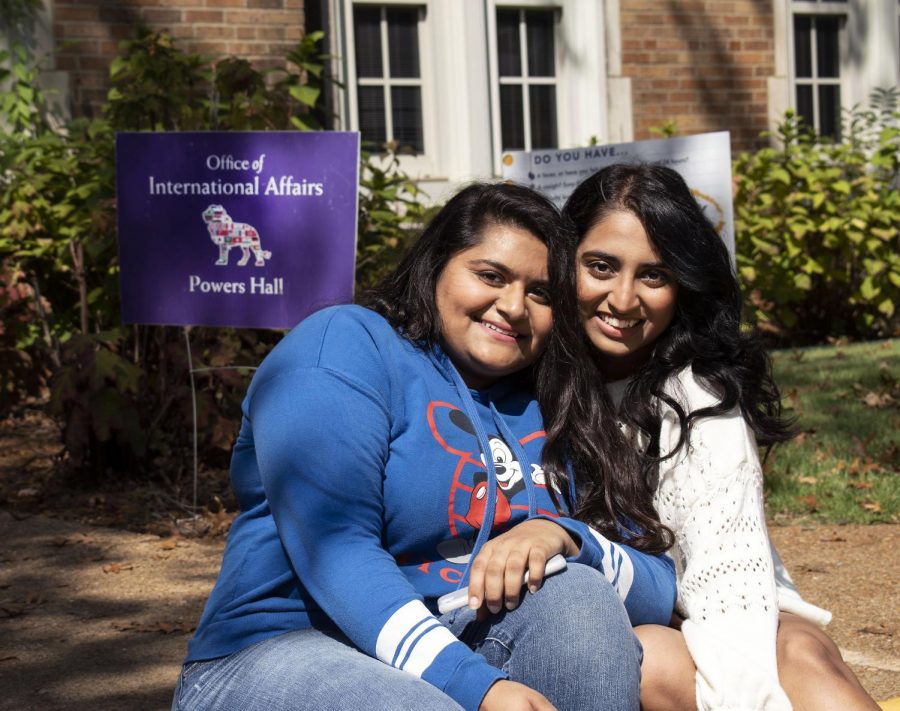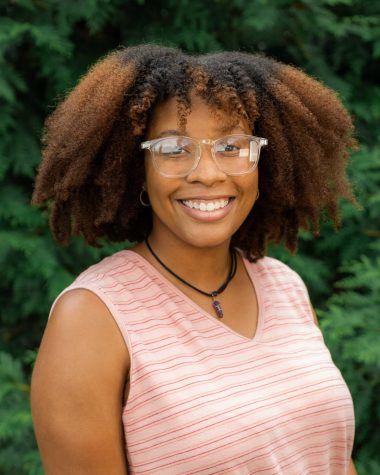A peek into two international students’ obstacles in COVID-19
October 1, 2020
Like most universities, students at the University of North Alabama have experienced their fair-share of changes while attending classes during the COVID-19 pandemic. From reoccurring Zoom meetings, masks and social distancing, students are forced to conform to what is now their new normal.
While domestic students have endured their own struggles, international students particularly have undergone an ample amount of adaptation themselves. Not only are they carrying a deep concern for their day-to-day life, but also for their families in their home countries.
Ritu Patel, a sophomore from Ahmedabad, Gujarat, came to the United States three years ago and remembers the exact date as if it were yesterday.
“[It was] October 23, 2017,” Patel said. “After that, I haven’t been [back]. Usually, my parents come here to visit me.”
But, Patel has not been able to see her family recently. Like most plans made prior to the rapid spread of COVID-19, Patel had plans of her own fall through. She was supposed to have her engagement party this past summer, but because most of her family are in India it has been postponed until what Patel hopes is this upcoming summer.
Despite the distance, she is in-touch with her parents every day. While to some, constant calls from their relatives might send their eyes rolling, Face-time calls to Patel go a long way. They are perhaps the highlight of her day.
“Since they are so far away, they worry about [me] ten times more than used to,” Patel said. “Now, they can’t scold [me] because they’re physically not here. [So] they’re constantly worrying. If I [were to] call my dad right now, it [may] be 3 a.m. in India but he [would] pick up. Even if he’s in an important meeting, he [would] pick up.”
Patel said she misses them a lot, but she knows they are safe by the way India is managing itself during this time of uncertainty.
“The way India [is handling] COVID-19 is impressive,” Patel said. “Even being the second largest populated country in the word, India [does] not have a high mortality rate [so] there [has been] a lot of people who [have] recovered.”
Srinidhi Siddi, a UNA junior from Hyderabad, Telangana, came to the United States a few months after her mom left India to enroll in school and better her future. At the time, Siddi was only 14 years old.
“My mom is my strength,” Siddi said. “She is someone I look up to. She is my hero. My mom was 40 years old when she came to do her PHD [in America]. She had to leave her kids, go to another country and survive [even though] she couldn’t speak proper English. We don’t get this kind of opportunity in our home countries ever.”
In America, Siddi has her parents and brother; however, there are still members of her family back in India, like her grandparents.
“My grandma calls me every morning and she asks: ‘did you drink lemon water?’” Siddi said. “After [checking in on me] she starts crying. I tell her, ‘don’t cry.’ I really want to see my grandparents. They’re getting older. I want to see my cousins. I want to hug all of my friends.”
However, this is not the only struggles international students have faced during COVID-19.
When the pandemic had first begun, businesses and campuses began to close down. Around this time, international students received an email from the university notifying them they had one day to move from Rice Hall to Olive Hall.
“[We were told] to leave nothing behind,” Patel said. “International students did not have all the amenities to move everything from here to there. Plus, there [was] an [ongoing pandemic]. I’m not sure how they expected to move all the students and social distance.”
Patel said that it was a very stressful time. Many international students were worried about leaving their belongings behind and not being able to find them later. She said that it may not seem important to other people, but to international students, their items are all they have.
“But the most stressful thing had to be our summer scholarships,” Patel said. “They randomly emailed people, saying that we would not get a summer scholarship this year and everyone was on the verge of tears. [Many of us] got depressed. COVID-19 was [in full effect] and my parents could not send me that much money in just a day. They could not convert rupee into American dollars.”
It was not until international students started complaining about their summer scholarships that these summer scholarships were given to them.
Siddi said that she was glad to hear this because she could not afford to stay at UNA without a scholarship and going back home was not an option.
“[Going back home] is a lot of money,” Siddi said. “It will at least cost [most students] $2,000 for a round trip to [back to their home countries]. A lot of [students] cannot afford that. I know can’t. I can’t ask my parents to do that. I can’t be selfish asking for more money from them. I think a lot of international students felt this way.”
Both Siddi and Patel agreed that they were living in constant fear, fear that they might not have a place to stay, fear that they would lose their scholarships and fear that they were going through the pandemic all alone without the proper guidance.
“It feels like the [Office of International Affairs] isn’t trying,” Siddi said. “They should provide students with more activities so that we don’t feel alone. Anything.”
Siddi said that her roommate is a student from Japan. She recalls her being so homesick her first semester away from home.
“She used to call her home every night,” Siddi said. “To make her feel better, I used to take her to my house in Madison, Al. [The Office of International Affairs] doesn’t do that. I’m not sure they [truly] understand how hard it is for international students to live alone … to fend for themselves.”
Siddi said that the office is also not doing a good job at representing international students.
“We kind of have to represent ourselves, letting people know who we are, where we’re from, and what we do,” Siddi said.
Patel shared a similar sentiment about UNA’s Office International Affairs lack of guidance.
“[The Office of International Affairs] does a good job when the students arrive on campus to get them familiar with the navigators and orientation, but after that, they leave them be,” Patel said. “It’s like if I were to invite you into my home as my guest and I gave you a tour, but then, I go off to do my job.”
The two said the university itself did a better job in aiding international students.
“The university has always [given off] positive vibes,” Patel said. “[We’re constantly receiving] messages and updates from President Kitts and other staff members. They have made me feel like [I’m] at home, [like I’m] safe.”
Patel said that it should have been the Office of International Affairs’ role to suppress their stress and boost their morale.
Despite this, Patel and Siddi are able to take away a lot from this situation, this bump in the road.
“I feel so lucky that my parents gave me this life,” Siddi said. “I feel like no one judges me the way they do in India. Women have so much more freedom here.”
Patel concurred.
“The people here are very accepting,” Patel said. “Look at how many cultures [there are on campus]. We fit in perfectly.”



